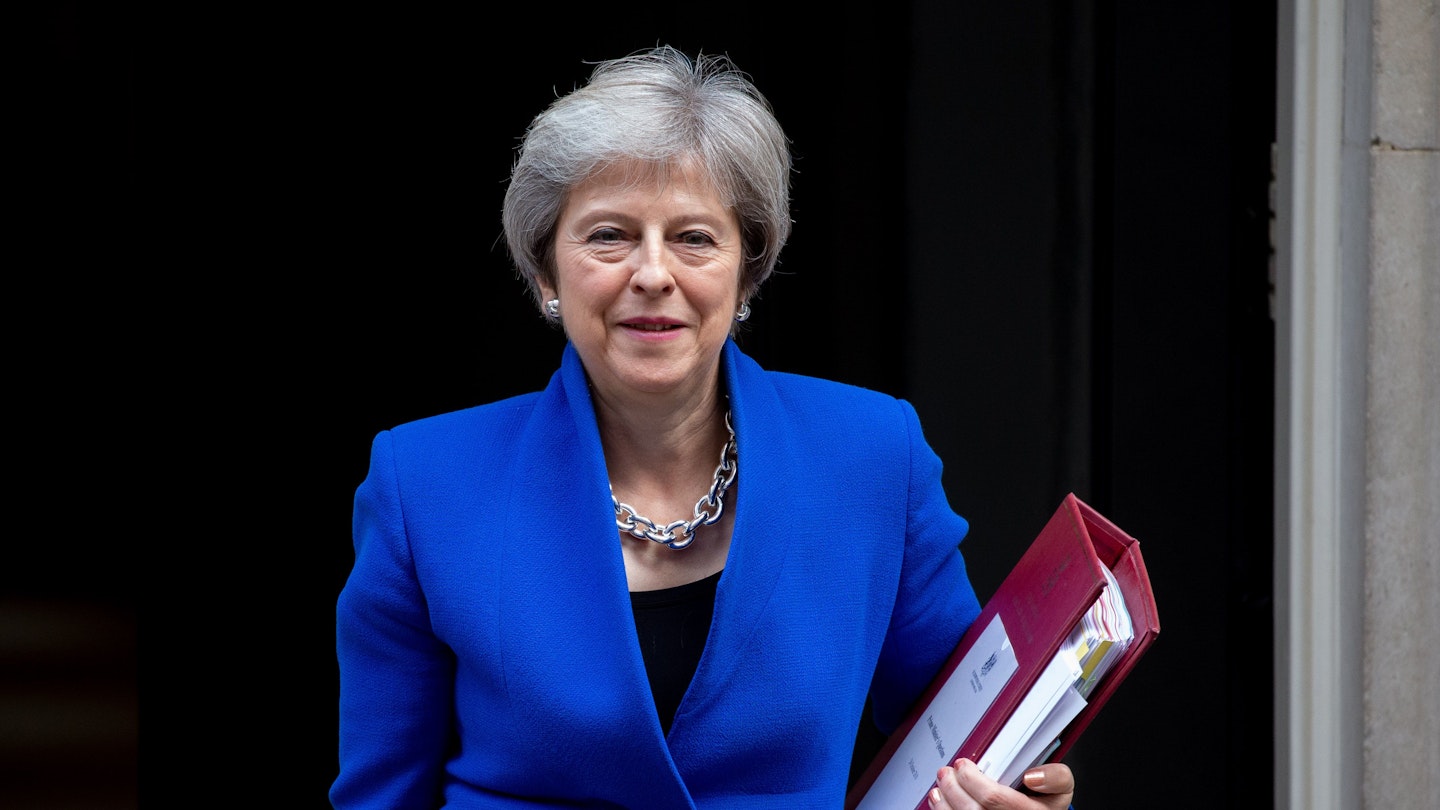Even Theresa May looked bemused as she was given the rock star treatment at an event last week. The atmosphere fizzed as the Prime Minister crossed the room, the crowd of women surging forward keen to shake her hand. And when she spoke, there were whoops and cheers. ‘There is quite a buzz,’ she says to Grazia, grinning.
Theresa May had invited more than 100 female politicians from around the world to Downing Street to mark 100 years of women getting the vote. Later this month sees the centenary anniversary of women being allowed to stand for Parliament – and a year from now will also mark the 100th anniversary of Nancy Astor becoming the first woman to take her seat in the House of Commons.
‘I knew from a young age that I wanted to go into politics but that wasn’t because of a single person,’ the PM says. ‘I’ve never been somebody who has had role models as such. Although having said that, I think it’s important for women in politics not just to set an example but also encourage other women to come into politics.’
When May was first elected in 1997, she was one of only 13 other woman MPs in her party. Today there are 67 – and 32 per cent in the Commons overall, the highest number in history – but that’s still nowhere near the number there should be considering women make up more than half of the population.
May agrees that last week’s results in the US midterm elections – which will result in more women in Congress than ever before - could be a huge boost. ‘It’s always fantastic to see more women being elected into office from any party and from any background.’
But she acknowledges that abuse on social media puts many women off standing for Parliament. ‘I am hugely conscious that a lot of MPs have suffered online and at the last election we saw an awful lot of abuse of candidates on social media. Social media can be used to create a positive atmosphere but it can also be used to create a negative, sometimes vicious, atmosphere and yes, this is a problem.
'We are already working closely with international partners and social media companies to understand how we can make the existing frameworks work better and ensure that internet is not exploited and abused.'
This is one of the reasons she believes women need to work together. May co-founded the Women2Win group in 2005 to support women who want to come into Parliament. ‘I think it’s really important that women see politics as something they can do. I hope that with groups like this, and by going to talk to girls in schools, that people will just see, just feel, that they can do these sorts of jobs. That women can get into politics, that they can be themselves and they can do a good job.’
May genuinely believes the reason people go into politics is to make a difference. ‘It’s why I went into it.’ She recalls one moment she is particularly proud of. ‘There was one instance when I was Home Secretary where I suddenly, out of the blue, received a letter from a woman who had been a victim of child abuse. She’d come home one day and her other half said to her, you should listen to this statement about child sexual abuse from the Home Secretary. She listened and as a result of that she actually went to the police and reported what had happened to her in the past. And they also identified someone else who’d also been a victim of this perpetrator.’
The perpetrator, says May, is now in jail. ‘And for that woman, something that had been hanging over her for her whole life – I don’t think there can ever be complete closure because, for a survivor, what they’ve been through is with them all the time – but there was some degree of closure because the perpetrator had been brought to justice.’
Back at the event, Elvira Surabaldieva, an MP in Kyrgyzstan – a country where forced marriage amongst children is rife - tells Grazia she is a huge fan of May. ‘She’s so fantastic, so inspiring. My one regret is that I didn’t see her shoes! Every MP has to be a role model. I want a woman standing in her kitchen seeing a woman MP on the TV to think, “If she can do this, so can I”.’
As for May, even though she’s not one for role models, there is one woman she singles out as being the most important of the last century. ‘Without a doubt, Her Majesty the Queen, who through her many years of dedicated service has been a force of unity and of strength.’
